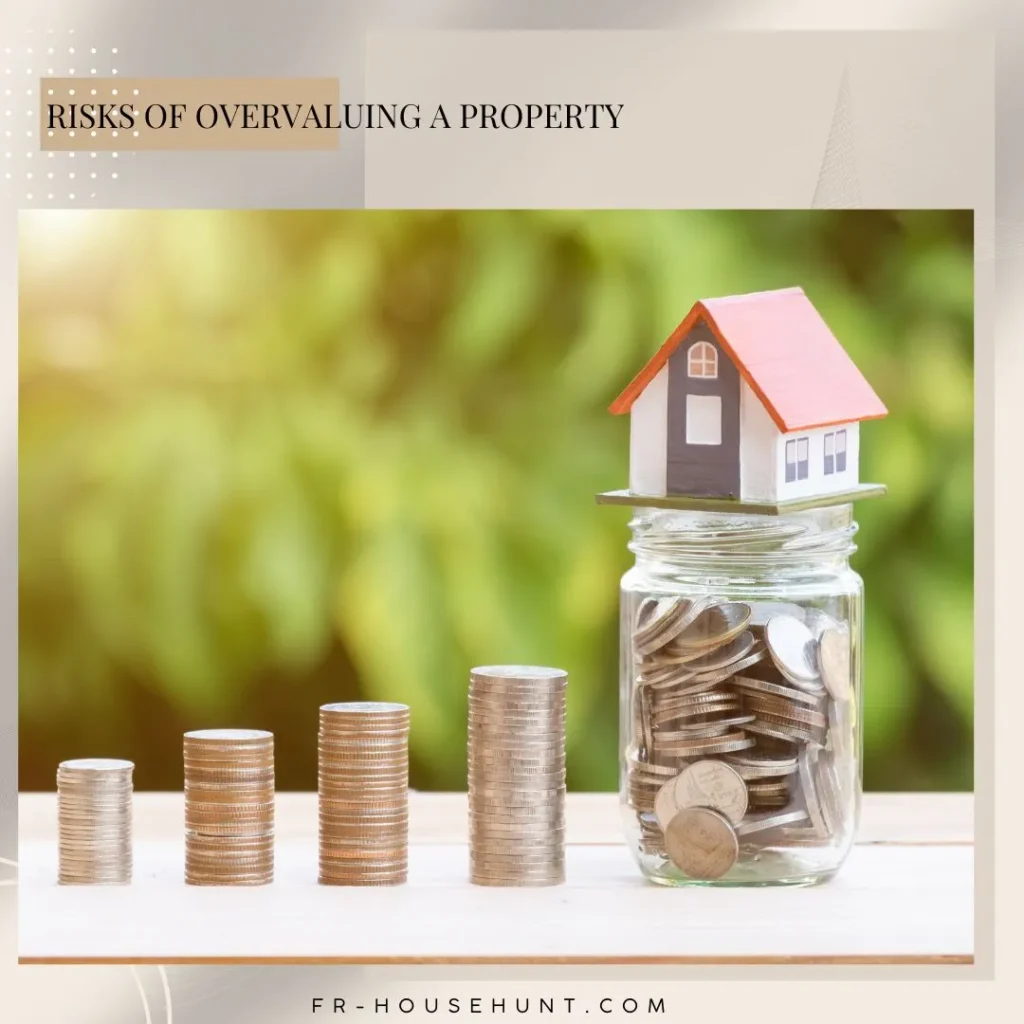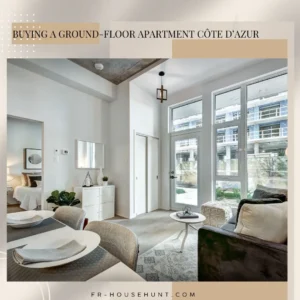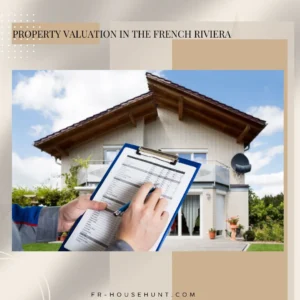
The Hidden Risks of Overvaluing a Property: What Every Buyer Should Know
Imagine you find the perfect house in the South of France—charming stone walls, a sea view, maybe even a palm tree or two. You’re ready to make your move, heart racing and pen in hand. But there’s one small problem: the price is suspiciously high. Still, emotions kick in. You think, “It’s rare, it’s special, and anyway, the market is hot.”
This is the classic trap of overvaluing a property—a surprisingly common pitfall, especially in desirable locations like the Côte d’Azur. Whether you’re a buyer from abroad or a seasoned investor, the risks tied to overpaying can be much more damaging than they first appear.
In this article, we’ll explore the different forms overvaluation can take, why it happens so often, and most importantly, the consequences it can have for your wallet, your plans, and your peace of mind.
What Does “Overvalued” Really Mean?
Let’s start with a simple definition: a property is overvalued when its asking price exceeds its actual market value. That might seem straightforward, but in practice, it can be tricky to spot. In France, especially in high-demand areas like Nice, Antibes, or Saint-Paul-de-Vence, sellers sometimes inflate prices in the hope that a wealthy or emotional buyer will pay up without asking too many questions.
Market value, by contrast, is based on what similar properties in the area have actually sold for recently, not what a seller dreams of getting. A property may look stunning and be full of potential, but if it’s priced 20–30% above comparable homes, it’s likely overvalued.
Understanding property overevaluation
To fully understand what property overvaluation is, it is important to know the different values that make up a property. These concepts are essential for accurately determining the maximum price when selling a property.
The first is the market value. This value is essential to know if your property is overvalued. It corresponds to the price at which a seller and a buyer are most likely to agree on a price without either feeling aggrieved, within a reasonable period of time. In other words, it corresponds to the true theoretical price of your property. It is very important to remember that this market value is obtained after negotiation. It is based on this value that it will then be possible to determine whether your property is overvalued.
How can this market value accurately estimated?
The professional who values your property will use various valuation methods such as the comparative method, the income capitalisation method, the previous value method, etc. But beyond these methods, they will assess current market demand based on interest rates and property prices at the time, the type of product, etc. Using these different methods, they will be able to accurately determine the real market value of an apartment or house after negotiation. This is not the price you will see in a property advertisement, as the property has not yet been negotiated.
This market value is then broken down into two prices. The net seller price (i.e. the amount the seller will receive from the sale of their property) and the HAI price (agency fees included), which corresponds to what the buyer will pay to acquire the property. These two values are often confused, particularly by sellers, and can lead to confusion, as some sellers hope to obtain the amount corresponding to the HAI price from the sale of their property. A property therefore has two market values: the seller’s and the buyer’s.
From this market value, it is then possible to calculate the maximum price that should not be exceeded for the sale of a property. To obtain this, it is essential to start from the HAI market value. This is because the price including agency fees is the price that a buyer sees when they view a property listing. The net seller is irrelevant to them. However, it is this price that will motivate them to visit a property and possibly make an offer on it.
Subjective value
The second value is the subjective value, which will allow you to know if a property is overvalued. It is calculated by applying a mark-up linked to a negotiation margin to the HAI market value, supplemented by a ‘favourite’ value. This value is therefore the maximum price that should not be exceeded, otherwise you risk not having any viewings for the property. Above this subjective value, the property you are selling or looking to buy will be considered overvalued. This subjective value can be determined upwards (in the case of overvaluation) or downwards (in the case of undervaluation).
Here is a simplified explanation of what an overvalued property is.
The maximum subjective value is therefore the highest price that a buyer will agree to pay for a property. It corresponds to the price that will be displayed in a property advertisement. In real estate, this is known as the asking price or listing price.
Unfortunately, sellers often tend to want to sell their property at a price higher than its maximum subjective value. They are then in a situation of overvaluation.
Would you like to know whether the property you want to buy is overevaluated?
Why Do Properties Get Overvalued?
There are a few reasons this happens, and they’re not always malicious:
- Emotional Attachment by Sellers
Owners often see their home through rose-tinted glasses. It’s where they raised their kids or spent their summers. That emotional connection can distort their perception of its real worth. - Lack of Market Knowledge
Sometimes, sellers don’t have the right data. They might base their price on rumors, outdated listings, or what their neighbor “said he could get.” - Agent Strategy
Let’s be honest—some agents overvalue intentionally to win the listing. Sellers tend to go with the agent who promises the highest price, and some professionals use that psychology to their advantage, even if they know the price is unrealistic. - Speculation and Hype
In hot markets or tourist areas, especially along the Riviera, there’s often a speculative bubble mentality. Everyone thinks prices will go up forever—until they don’t.
No panic: FRH is here to help you setting the right amount!
The Buyer’s Perspective: Why Overpaying Hurts You
If you’re buying in France from abroad—perhaps as a second home, a relocation project, or an investment—overvaluing is especially dangerous. Here’s why:
- You Risk Losing Money in the Long Run
If you overpay today and need to sell in 3–5 years, there’s a good chance you won’t recover your investment—especially once you factor in notary fees, taxes, renovation costs, and agency commissions. French real estate isn’t always as liquid as people think. A profit is never guaranteed.
- Financing Can Get Complicated
French banks are typically conservative. If the appraisal from the bank’s expert comes in lower than the purchase price, they may refuse to lend the full amount, or they’ll ask for a bigger down payment. This can mess up your financing plan or delay the process altogether.
- Renovation Projects Become Financially Risky
It’s one thing to pay top dollar for a home that’s turnkey and high-spec. But if you’re buying a property that still needs major renovations, overpaying at the start leaves you with less margin for the work ahead. Your total investment can spiral quickly.
- The Emotional Fallout
There’s also the emotional cost. No one wants to find out a year later that they paid too much, especially when a neighbor’s similar property sells for 20% less. It creates resentment and disappointment, turning your dream purchase into a lingering regret.
Case Study: A Tale from the Riviera
Let’s say you’re buying in Villefranche-sur-Mer, a dreamy spot with world-class views. You see a 3-bedroom apartment listed at €1.8 million. The view is great, but the interior needs updating. Your property hunter checks recent sales and finds that similar units—renovated and with even better exposure—sold for €1.4M to €1.5M.
You point this out to the seller’s agent, but they insist on the “uniqueness” of this flat. They mention vague interest from a buyer in Monaco. Fast forward six months: the property is still listed, now reduced to €1.6M. Eventually, it sells for €1.45M.
Had you made an emotional offer early on, you might have overpaid by hundreds of thousands of euros. That’s money better spent on renovations, furniture, or your favorite rosé.
How to Spot an Overvalued Property
Here are some warning signs to look out for:
- Too Much Time on the Market:
If a listing has been around for 6–12 months with no serious offers, there’s a good chance it’s overpriced. - Discrepancy Between Asking and Appraised Value:
If you’ve had an independent appraisal done, and there’s a significant gap, that’s a red flag. - “It Just Feels Too Expensive”:
Trust your instincts. If you’ve seen enough homes in the area and one just feels out of line, you’re probably right. - No Comparable Sales at That Price Point:
Always ask your agent for recent sales data. If nothing in the area has sold for a similar amount, dig deeper.
How a Property Hunter Helps Avoid This Trap
This is where a good chasseur immobilier earns their keep. A property hunter:
- Knows the market intimately: Not just the asking prices, but the actual selling prices.
- Sees through sales tactics: They’ve heard all the “we’ve got another offer coming” stories before.
- Negotiates hard on your behalf: Without emotional involvement, they can act strategically.
- Has access to off-market deals: Which are often more realistically priced.
In short, they act as your reality check and your advocate—especially crucial when you’re buying from abroad and don’t know the nuances of the local market.
How to Protect Yourself as a Buyer
If you’re worried about overvaluation, here are a few practical steps to take:
- Get an Independent Valuation
Ask a local notaire or valuation expert for a second opinion, especially if you’re unsure. - Do Your Own Comparisons
Look on sites like SeLoger, LeBonCoin, and Bien’ici for recent sale prices in the same area, not just listings. - Take Your Time
Don’t be pressured. In most cases, the “perfect” house has a twin somewhere else at a more reasonable price. - Work with a Local Expert
Whether it’s a buyer’s agent, a property hunter, or a trusted notaire—having someone neutral in your corner changes everything.
Don’t Fall in Love with the Price Tag
Falling in love with a home is totally human. But falling in love with a price—especially an inflated one—is a trap. The French Riviera is full of beautiful properties, but beauty doesn’t always equal value.
The goal isn’t to get a bargain for the sake of it—it’s to buy smart, based on solid facts, expert guidance, and a little patience. Over time, that approach will always serve you better than jumping on an overpriced dream.
Looking to buy on the Côte d’Azur but don’t want to overpay?
Let’s talk. As a local property hunter, I help foreign buyers navigate the French market and find homes that are really worth the price tag.





